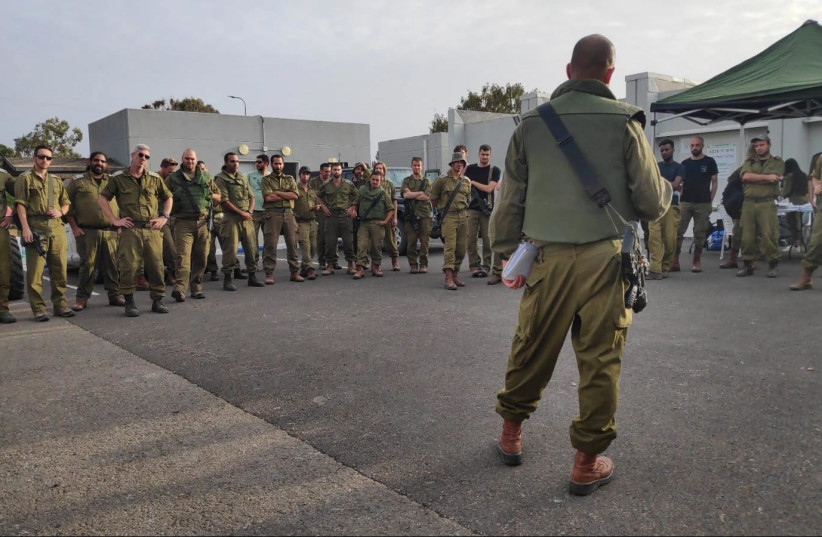As the IDF’s large-scale Home Front Command and National Emergency Authority (RAHEL) drill simulating a large-scale conflict with Iran and the Lebanese Hezbollah terrorist group comes to a close, officers warn that both citizens and soldiers need to be ready for any type of emergency to hit the home front.
“The home front needs to be ready, and so do we. Whenever something should happen we all need to be ready: the citizens and the army,” said Northern Command training officer Lt.-Col Yaniv Friedman.
Along with the Home Front Command and RAHEL, all security and various governmental bodies, as well as Israel Police and Magen David Adom, participated in the drill that ended on Wednesday night.
“The drill became more complicated as days went on, just like we expect war to become,” Friedman said. “We know that there are not only soldiers but also reservists who need to be drilled in order to protect the State of Israel.”
It is the Home Front Command which is responsible for alerting the public of any rockets that have been fired from Israel’s enemies, using sirens and push notifications from their app.

In May, over 4,000 rockets and other projectiles were fired into Israel by Hamas and Palestinian Islamic Jihad. A soldier and twelve Israeli citizens were killed.
Should a war break out with Hezbollah, tens of thousands of rockets are expected to be fired from Lebanon, with some 2,000 fired toward Israel every day.
The week-long drill with thousands of troops, reservists and government officials comes on the heels of the military learning from the May fighting between Israel and terror groups in the Gaza Strip.
“There are set regulations in the Home Front Command, and you need to train the people and the systems themselves to make sure that they work when needed in an emergency,” Friedman said.
The drill included a simulation of missile attacks from the north, south and the east; contending with racial riots within Israel; and widespread cyberattacks on vital infrastructure such as power stations, hospitals or water that could disrupt life.
Due to the large number of projectiles expected to be fired towards border communities and the continued lack of adequate bomb shelters, the drill also focused on the evacuation of residents of communities that are within 5 km. of the Lebanese border and the absorption of those individuals in other locations across the country.
The evacuations were simulated while under enemy fire.
Lt.-Col. Sagi Baruch, who heads the command’s southern branch, said that the “significant” drill challenged all those taking part in a number of scenarios that the country will face, both in the North and South during wartime.
“Evacuating civilians during wartime is a very complicated scenario,” he said, adding that every community knows where it will be evacuated to, be it in the center or south of the country.
“The challenge is the North, but we expect that terror groups in the South will also want to challenge Israel when something happens in the North, along with violence in civilian areas such as riots on roads and other challenges in mixed cities,” Baruch said.
“We are looking to see if and how all the bodies can work together to provide the right answer.”
Formed in 1992 after the first Gulf War, the Home Front Command is in charge of civil defense and is responsible for readying the country in case of conflict or disaster, whether natural or man-made.
The command was criticized for its response during the 2006 war with Hezbollah, which killed more than 160 Israelis. Since then, it has strengthened its units, and its liaison units are active in hundreds of municipalities across the country.
